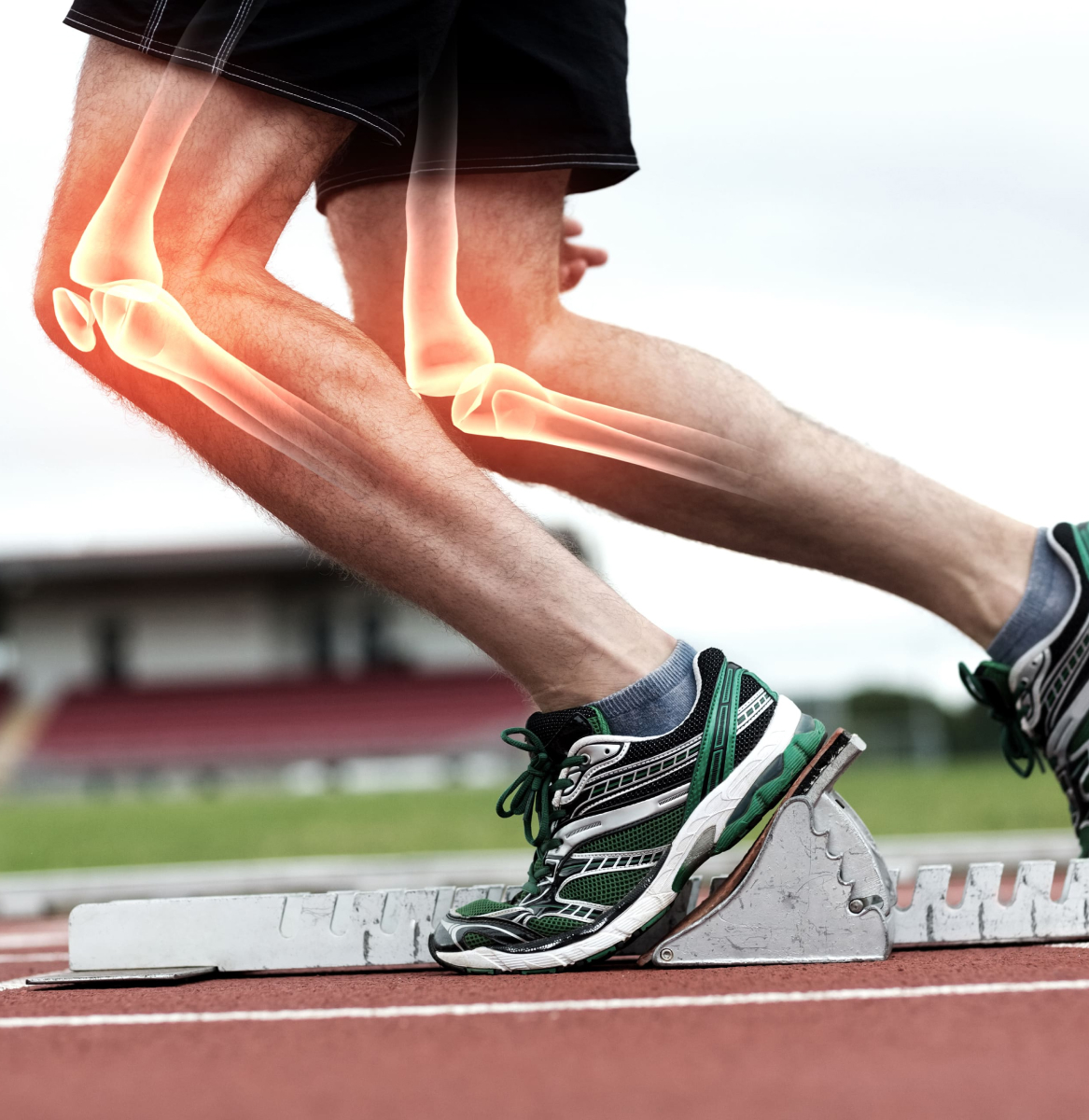Knee Instability Specialist In Singapore

Dr Wang Lushun
Senior Consultant Orthopaedic Surgeon
MBBS (Singapore)
MRCS (Edin)
MMed (Ortho)
FRCS (Ortho) (Edin)
- Walk with confidence again by treating your knee instability
- Fellowship-trained orthopaedic surgeon
- Internationally recognised, more than 1500 surgeries performed



What is Knee Instability?
Knee instability is a condition where the knee joint is unable to maintain its normal stability during movement, resulting in an unpredictable feeling of unsteadiness. It’s usually experienced by people who participate in high-impact sports (such as basketball or football) and those with previous knee injuries.
Knee instability can also be a symptom of underlying conditions such as:
- Knee ligament injury (Anterior Cruciate Ligament tears; Posterior Cruciate Ligament tears; Medial / Lateral Collateral Ligament tears)
- Patella (kneecap) dislocation
- Osteoarthritis
- Rheumatoid arthritis or other inflammatory arthritis
- Chronic Knee joint infection
If left untreated, knee instability can lead to more severe problems, such as:
- Chronic knee pain
- Knee joint damage or deterioration
- Increased risk of knee injuries
- Limited mobility or inability to participate in physical activities
Signs Your Knee Instability Needs Medical Attention
Knee instability, when experienced with other symptoms, may be a sign of an underlying knee condition that needs treatment. Consulting an orthopaedic specialist is crucial in the early prevention or treatment of knee instability to prevent further damage or injury.
If you also experience the following symptoms, consult an orthopaedic specialist to receive a proper diagnosis:
Swelling
The swelling may be due to the accumulation of fluid or inflammation within the joint, which can lead to pain and stiffness.
Popping or clicking sounds
Unusual popping or clicking sounds in your knee joint may indicate a torn ligament or cartilage, which could lead to further damage and instability if left untreated.
Buckling or giving way
Frequently instability and buckling of knees during any physical activity can lead to falls or injuries, which can cause further damage to the knee joint.
Pain
If you experience pain in your knee during physical activities or when bearing weight, it may be a sign of underlying knee issues.
Don’t let knee instability hold you back.
Book a consultation today.
Book a consultation today.
Improve your overall knee function and avoid long-term complications through early prevention or treatment.
Early intervention for knee instability can prevent the need for more invasive treatments in the future,
allowing you to enjoy your daily activities and hobbies without burden.
Does Knee Instability Go Away?
Knee instability can be a temporary issue or a chronic issue depending on the cause. In some cases, knee instability can be treated with rest, ice, elevation, compression, and physical therapy. Other times, it may require more invasive treatment such as surgery to repair the affected ligament. Consult an orthopaedic specialist to determine the best course of action for your particular situation.
What Causes Knee Joint Instability?
Knee joint instability can be caused by various factors such as muscle weakness, joint laxity, or previous injury. Joint laxity is when the ligaments that are responsible for stabilizing the knee are too loose, which can lead to the knee giving way or buckling. Muscle weakness in the muscles around the knee can also contribute to knee joint instability, as these muscles are responsible for providing stability to the knee.
When Should Knee Instability Be Treated?
If you experience recurring knee instability, seek medical advice from an orthopaedic specialist as soon as possible. If left untreated, it can be exacerbated and lead to pain and discomfort that can disrupt daily tasks and activities. Early medical attention can help identify the cause of the instability, determine possible underlying conditions, and provide the best treatment and recovery plan.


Dr Wang Lushun
Senior Consultant Orthopaedic Surgeon
MBBS (Singapore)
MRCS (Edin)
MMed (Ortho)
FRCS (Ortho) (Edin)
Internationally Recognised & Double Fellowship-Trained Surgeon With Over 18 Years of Experience
- Bachelor of Medicine & Bachelor of Surgery (MBBS),
National University of Singapore - Member of The Royal College of Surgeons (MRCS),
Edinburgh, United Kingdom - Master of Medicine in Orthopaedic Surgery (MMed),
National University of Singapore - Fellow of The Royal College of Surgeons in Orthopaedics and Traumatology (FRCS), Edinburgh, United Kingdom
As a Senior Consultant Orthopaedic Surgeon and former Head of the Hip and Knee Division in Ng Teng Fong Hospital, he has won awards for superior patient outcomes (value driven), service quality and enhanced recovery programmes. His patients include current and former national athletes and sporting professionals.
Why Choose
Dr Wang Lushun?
Trusted
Leadership on Orthopaedic Advisory Boards
Skilful
Double Fellowships at Centres of Excellence
Experienced
Senior Consultant with Over 18 Years of Experience
Can I Use Medisave For Knee Surgery?
Yes, you can use your Medisave account for specific procedures.
Reach out to us today to learn more about payment options.
Patient-Centred Orthopaedic Care
We are dedicated to your recovery and well-being. Every patient deserves the freedom that comes with active living. Whether you're an athlete sidelined by an injury or a weekend hobbyist desperate to return to your passion, our mission is to help you regain your mobility and independence.
Personalised Approach For Positive Outcomes
Our clinic prioritizes time dedicated to understanding each patient’s injuries and needs. Dr Wang strongly believes that personalised care & patient management will lead to better outcomes & positive experiences.
Minimally Invasive Techniques For Faster Recovery
Dr Wang’s extensive experience with minimally invasive procedures allows for less scarring, lower risk of complications and faster recovery compared to traditional surgical methods.
Aftercare Focused On Restoring Mobility & Well-Being
As an avid sportsperson, Dr Wang understands the time and patience required to regain mobility and return to active living. After your procedure is completed, Dr Wang will make sure your recovery is smooth and comfortable.
Insurance
We accept all patients, with or without insurance plans. Additionally, we are on the specialist panels of these Health Networks/Insurance Plans. Please contact us if you have any queries and we will be happy to assist you in checking with your insurance provider.
Our Clinic Locations
3 Mount Elizabeth, #13-14
Mount Elizabeth Medical Centre
Singapore 228510
820 Thomson Road, Mount Alvernia Hospital, #05-51, Medical Centre D, Singapore 574623
Frequently Asked Questions
Can knee instability be treated without surgery?
In many cases, knee instability can be treated without surgery. Non-surgical methods such as physical therapy, bracing, or injections may be used. The treatment plan depends on the cause and severity of the instability. Before undertaking any treatment, consult with an orthopaedic specialist to find out the best possible course of action.
How is knee instability diagnosed?
Knee instability is typically diagnosed through a combination of physical examination, medical history, and imaging tests such as X-rays, MRIs, or arthroscopy. Your orthopaedic specialist may also conduct a series of tests to evaluate the strength, stability, and range of motion of the knee joint.
When is surgery necessary for knee instability?
Surgery may be necessary for knee instability when non-surgical treatments fail to improve the condition. The type of surgery will depend on the underlying cause of the instability and may include repair or reconstruction of the affected structures in the knee joint. Your orthopaedic specialist will work with you to develop a treatment plan that’s tailored to your specific needs and goals.
Can knee instability be prevented?
In some cases, knee instability can be prevented by maintaining a healthy weight, engaging in regular exercise to strengthen the muscles around the knee joint, wearing appropriate footwear, and using proper techniques during physical activity. However, some causes of knee instability, such as joint degeneration or medical conditions, may not be preventable.
Can knee instability lead to other knee problems?
Untreated knee instability can potentially lead to other knee problems, such as further ligament or cartilage damage, joint degeneration, and chronic pain or instability. Addressing knee instability early on can prevent further damage and improve overall outcomes.
What should I expect during a consultation with an orthopaedic specialist for knee instability?
The orthopaedic specialist will conduct a thorough evaluation of the knee joint and medical history, which may include imaging tests or other diagnostic procedures. This is followed by the diagnosis and treatment options, including both non-surgical and surgical options, as well as the potential risks and benefits of each approach. Your doctor will will with you to develop a personalized treatment plan.